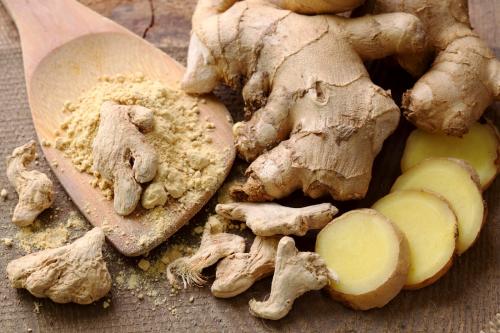Is Ginger Good for Heart Health?

Ginger root
is not only a delicious spice that can make your meal tastier, for centuries it
has also been used as a medicine and a part of herbal remedies in such Asian
countries as Thailand, India, China, and Japan. Modern medicine has confirmed the
health benefits of ginger as well. Ginger is rich in various minerals (iron,
calcium, copper, potassium, selenium, sodium, magnesium, etc.) and vitamins
(vitamin K, E, C, choline, and group B vitamins).
Researchers
believe that ginger root can lower the risk of certain cardiovascular diseases.
The results of a double blind clinical study issued in 2008 showed that ginger
has marked lipid-lowering properties since it can significantly reduce the
blood levels of cholesterol, very low density and low density lipoproteins, and
triglycerides. This discovery shows that ginger is potentially advantageous for
the prevention of such serious condition as atherosclerosis.
Diuretic
and antihypertensive properties of ginger have long been known in the
traditional medicine practices in various countries. Thus, in Pakistan
herbalists prescribe it to those suffering from hypertension to be taken after
dinner. A study from 2005 suggests that ginger can lower blood pressure using
the mechanisms that involve the blockage of voltage-dependent calcium channels.
The
University of Maryland Medical Center claims that ginger can prevent blood from
clotting. This peculiarity of ginger can be beneficial for the patients who
suffer from cardiovascular diseases when blood vessels can become clogged which
causes a stroke or myocardial infarction.
However,
with all its cardiovascular benefits, ginger can still be harmful to certain
people with cardiovascular disease. Researchers state that high doses of ginger
can aggravate heart conditions. Thus, patients with low blood pressure
(hypotension) and those who are already taking blood pressure preparations can
have heartbeat irregularities or an unsafe decrease in blood pressure when
consuming ginger. Moreover, ginger can interact with other preparations such as
blood thinners. Therefore, it’s worth talking to a doctor before taking ginger.
Post Your Ad Here
Comments